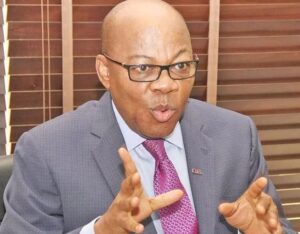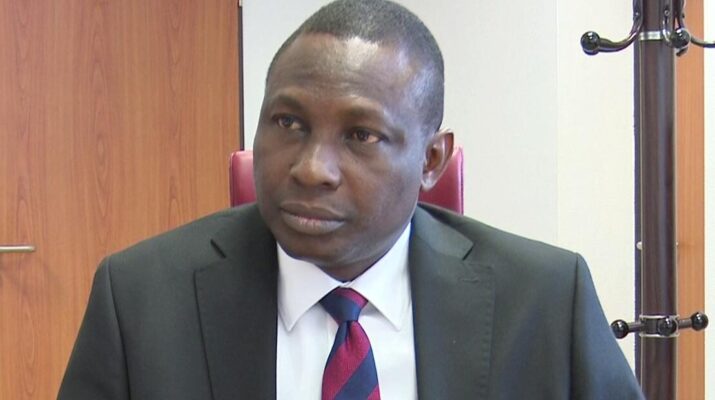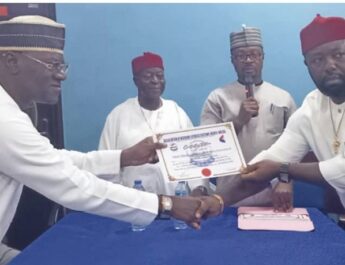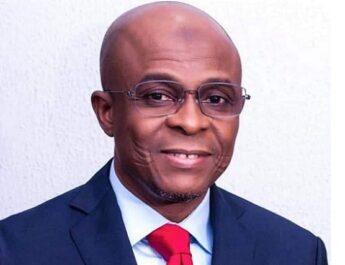There is apprehension, suspense and confusion as thousands of jobs face threats of termination if the Supreme Court is convinced by the federating states that the anti-graft agencies operating in the country were illegally established
By Udoka Ekeleme, Abuja
At the last count, the Supreme Court has reserved judgement on the case seeking to proscribe the Economic and Financial Crimes Commission (EFCC), brought to it by 19 out of the 36 states of Federal Republic. On Tuesday, October 22, 2024, after hearing from both parties, the apex court said its judgement on the matter has been reserved for a date that would be communicated to the parties.
Penultimate week, precisely October 22, 2024 was the day set aside by the Supreme Court of Nigeria for the hearing and the consolidation of the suit brought before the Court in the matter between the 19 states of the Federation and the Attorney General of the Federation to determine the legality or otherwise, to wit the constitutionality or otherwise also, of the EFCC, the Nigerian Financial Intelligence Unit (NFIU), the Independent Corrupt Practices and Other Related Offences Commission (ICPC) and the Proceeds of Crimes Act. The suit originally filed by the Attorney General of Kogi State SC/CV/178/2023 was joined by 15 other states. Out of these, 13 are expressly questioning the legality of the EFCC and similar anti-graft agencies, and they are asking the Supreme Court to nullify all such commissions created outside the province of Constitutional provisions. Two states Ogun and Cross River States are challenging the assumed powers of the NFIU to dictate how much states can withdraw or control with regard to funds appropriated by the House of Assembly.
The issues in this case can be easily summarized as follows. One, the plaintiffs argue that the EFCC Act is unconstitutional. It is a product of a United Nations Convention against corruption, and was not ratified in accordance with Section 12 of the 1999 Constitution (as amended). Section 12 of the Constitution says no treaty can have the force of law in Nigeria until it is ratified by a majority of all the Houses of Assembly in the Federation. The states argued that the EFCC Act cannot be applied to them because they were not party to it. They argued that the agencies lack the powers and the authority to investigate and prosecute matters related to the misappropriation of public funds. They cited Joseph Nwobike vs FRN as the authority to back up their claim. The Defendant, the Attorney General of the Federation argued that the concurrence of the states as stakeholders was not necessary to make the EFCC Act valid. Two, at least three states argue that the NFIU cannot investigate, requisition documents, arrest, or invite anyone with regard to how the states manage funds. Three, the states insisted that they have the right to establish their own anti-graft agencies and not be answerable to any federal agency since this is a Federation.
Interestingly, the case has since generated interests from legal luminaries and other analysts who have been trying not to pre-empt the Supreme Court.
 Remarkably, two Senior Advocates of Nigeria (SANs), Dr. Olisa Agbakoba and Mr. Femi Falana have offered their perspectives on the subject. Agbakoba, in separate letters titled “Re: Urgent Legislative Attention on Constitutional Reforms Relating to Law Enforcement Agencies and Anti-Corruption Efforts” written to the Senate and the House of Representatives, without holding brief for the state governments, submitted that the EFCC was “unconstitutionally established” and hence, “an unlawful organization”. He said the National Assembly acted ultra vires, and simply exceeded its authority under Section 4 of the Constitution, and that was why the states are now challenging the validity of the EFCC. Agbakoba said that the enabling framework setting up the EFCC has to be reviewed because the EFCC appears to be working at cross-purposes with the Nigeria Police Force (NPF). Again, Agbakoba said that the National Assembly should organize a public hearing to consider constitutional issues that needed reforms in line with section 13 of the Constitution, and that the National Assembly should reform the EFCC by clearly defining its mandate to prevent further issues.
Remarkably, two Senior Advocates of Nigeria (SANs), Dr. Olisa Agbakoba and Mr. Femi Falana have offered their perspectives on the subject. Agbakoba, in separate letters titled “Re: Urgent Legislative Attention on Constitutional Reforms Relating to Law Enforcement Agencies and Anti-Corruption Efforts” written to the Senate and the House of Representatives, without holding brief for the state governments, submitted that the EFCC was “unconstitutionally established” and hence, “an unlawful organization”. He said the National Assembly acted ultra vires, and simply exceeded its authority under Section 4 of the Constitution, and that was why the states are now challenging the validity of the EFCC. Agbakoba said that the enabling framework setting up the EFCC has to be reviewed because the EFCC appears to be working at cross-purposes with the Nigeria Police Force (NPF). Again, Agbakoba said that the National Assembly should organize a public hearing to consider constitutional issues that needed reforms in line with section 13 of the Constitution, and that the National Assembly should reform the EFCC by clearly defining its mandate to prevent further issues.
In a recent interview, Agbakoba posited that there was nowhere and at anytime when the National Assembly and the Federating States concurred in the establishment of the EFCC. The Senior Advocate further opined that in the Nigerian Constitution, crime and corruption are not in the Exclusive Legislative List. For this reason, Agbakoba insisted that the Federating States should be allowed on issues relating to crime and corruption.
In summation, Agbakoba said that the EFCC is an unconstitutional and unlawful organization. “I have my reason why EFCC is an unlawful organization, its creation is outside legislative scope of Nigeria. The National Assembly should clarify what EFCC should be doing. EFCC has no power to investigate the states because Nigeria is a Federation, we don’t need Abuja to be policing states’ finances using EFCC.
“The time for Nigeria to be driven by constitutionality is now, we have to run together on the basis of the constitution. Yes, the EFCC can do some good job, but are they constitutional? Today, governors have seen the EFCC as a tyrannical organization.
“The EFCC has done a lot of bad things such as the treatment meted out to Tafa Balogun, a former Inspector General of Police. To me, EFCC operatives are terrorists, they terrorize us, they take away our rights, we should stop them from doing all that”, Agbakoba submitted.
At the last hearing, three out of the 19 states challenging the constitutionality of the laws that established the EFCC informed the Supreme Court of their intention to withdraw from the suit.
Anambra (9th plaintiff), Adamawa (16th plaintiff), and Ebonyi (18th plaintiff) separately submitted applications for withdrawal before the Court.
The Attorney General of Anambra State, Professor Sylvia Ifemeje, informed the court that she wishes to withdraw from the suit, having filed a motion for withdrawal on October 20.
Similarly, the Attorney General of Ebonyi State, Ikenna Nwidagu, stated, “My Lord, I filed a notice of withdrawal dated and filed on October 21. My Lords, we pray this honourable Court strikes out the name of the 18th plaintiff.”
The Attorney General of Adamawa State, Afraimu Jingi, remarked, “My Lord, I have filed a notice of withdrawal of the suit dated October 14. I am praying this Court to allow me to withdraw from the suit.”
Unanimously, the seven-member panel of the Supreme Court presiding over the matter granted their request and struck out their names from the suit, following the non-opposition from the Attorney General of the Federation and Minister of Justice, Lateef Fagbemi, to their withdrawal.
With their withdrawal, the states remaining in the suit are Kogi, Katsina, Kebbi, Sokoto, Jigawa, Oyo, Benue, Enugu, Plateau, Cross River, Ondo, Niger, Edo, Bauchi, Taraba, and Imo.
Meanwhile, the Attorney General of Osun State, represented by Oluwole Jimi-Bada, informed the court that he had filed a motion to be consolidated into the suit.
The counsel for Kogi State, Abdulwahab Mohammed (SAN), the 1st plaintiff, urged the court to grant all their reliefs. He asserted that the EFCC was not well founded, stressing that the commission is a product of convention.
“The crux of our suit is the decision of this Court. The counsel that represented the appellant in that suit, by the rules of this Court, Order 4, will be called to address this Court. He participated in the bill that birthed the EFCC and ICPC together.
“Chief Kanu Agabi (SAN) informed this Court that it was the UN Convention that reduced this into law. Section 12—this provision was never followed.
“This fact was not an issue in the case of AG Ondo vs. AG Federation. There is a specific provision for bringing a convention in. You cannot merely discuss Items 7 or 8.
“We are also challenging the foundation of those laws that created NIFU, EFCC, etc., in order to avoid creating a constitutional crisis.
“There is a specific provision for bringing a convention in. We have also made the case, my Lord, that we are challenging them because they are a product of a convention.
“They are not well founded and should be discounted. It was never intended to be a law applicable throughout the country. It was made to protect our resources from being taken out of this country. We pray your Lordship to allow this suit and award substantial costs in favour of the plaintiffs on record.”
The Attorney General of the Federation (the defendant), Fagbemi in his response, urged the apex court not to deviate from the previous judgment it delivered on the same matter that was brought before it, stressing that the court must strike out the suit in its entirety.
Fagbemi said, “I adopt and rely on my processes and urge your Lordship to strike out the plaintiffs’ originating summons.
“With respect to the case of Joseph Nwobike, Nwobike’s case, whether in action or inaction, has no relevance in this case.
“The UN Convention may have expired, but we did not enact this law because the UN Convention required us to. Section 15, subsection 5, states that the state must abolish all corrupt practices and abuses of power. There is no indication that your Lordship should deviate from what you have already stated. This suit should be struck out from its stems, branches, and roots. I urge your Lordship to dismiss the suit.
“The implication, your Lordship, if you grant the relief sought by the plaintiffs, is that the public will perceive the Supreme Court as supporting corruption.”
After the parties presented their arguments, Justice Awani Aji announced that the suit would be reserved for judgment, with a date to be communicated to the parties.
Nasarawa and Ogun States, which had separate requests, were also joined in the general suit.
Nineteen state governments had come together to contest the constitutionality of the laws establishing the Economic and Financial Crimes Commission in the country.
While Nasarawa and Ogun specifically challenged the Nigerian Financial Intelligence Unit’s cash withdrawal limit guidelines.




